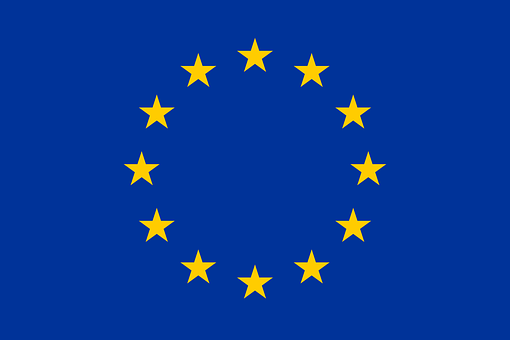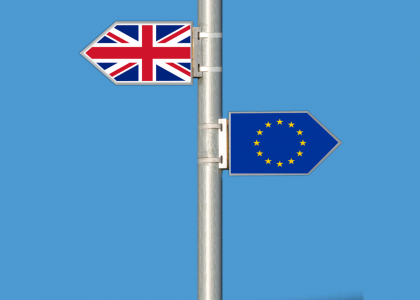If the European Union is to be ambitious in pursuing its Green Deal it must dramatically reform the Common Agricultural Policy (CAP) which is currently a major contributor to biodiversity loss in the EU. While the EU proudly advertises its “Farm to Fork” and Biodiversity strategies for 2030, the proposed CAP reforms undermine their goals. Meanwhile, the European Parliament and Council of the EU have significantly watered down these initiatives.
The Common Agricultural Policy (CAP) is one of the EU’s core policies and takes up more than a third of its budget. the CAP has gone through several rounds of reforms since the 1980s and currently involves two pillars. The first and larger pillar provides necessary income support for farmers, who typically earn less than other sectors. These direct payments are based on the amount of land used. In addition, the CAP is designed to maintain price stability for farmers and consumers. Part of the second pillar is linked to rural development such as support for expanding agriculture to ‘areas of natural constraints,’ which are harder to farm on. This pillar is co-financed by national or regional governments. The CAP has incentivised farmers to expand their farms in order to receive more EU money, and dedicated funding allows them to cultivate areas unsuitable for agriculture. Both these dynamics have led to an increase in habitat loss. Moreover, 80% of direct payments are only going to 20% of farmers. Small farms, which can be more environmentally friendly, are not getting adequate support. The current CAP system seems to be enriching large landowners and businesses while destroying precious ecosystems.
The European Environment Agency (EEA) paints a bleak picture of biodiversity. It reports that 60% of species assessments and 77% of habitat assessments remain in unfavourable condition, with farmland bird populations having declined by 30%. Intensive farming practices are largely responsible for this loss and often lead to degraded soil, water contamination, and the decline in pollinators. Importantly, the EEA states that ‘the CAP has not changed sufficiently to reduce overall biodiversity loss.’ Moreover, intensive farming is a major greenhouse gas emitter and maintaining ecosystems can help fight climate change through natural carbon sequestration in areas such as peatlands.
As part of its European Green Deal the EU Commission has proposed legislation aiming to reform the CAP post 2020. Among of the Commission’s proposals is the creation of Eco-schemes, a voluntary scheme that farmers can enroll in, providing direct payments for ecologically friendly farming practices. There is also increased conditionality linking payments to good farming standards seen in four new ‘Good Agricultural and Environmental Conditions’ (GAECs) rules, which plan to protect grasslands and carbon rich habitats like wetlands. The Commission hopes that CAP reform can help contribute to the EU biodiversity strategy, making food production more sustainable.
Political negotiations for CAP reform
However, it is disheartening to see that the EU’s two co-legislators, are failing to support the Commission’s proposals and are dealing a blow to a key component of the Green Deal. In October 2020 MEPs from the three largest political groupings – the European People’s Party (EPP), Socialists and Democrats (S&D), and Renew Europe (Liberals) – agreed on a set of amendments in order to reach a common position. These undermined eco-schemes; although 30% of the first pillar’s payments were ringfenced for them, the money can be used for economic as well as ecological objectives. Moreover, the Parliament rejected the proposal to protect grass and peatlands from farming and halved the minimum percentage of agricultural area that would have to be devoted to non-productive features.
The collaboration was criticised by the Green party whose amendments to integrate the Commission’s biodiversity and Green deal targets into the CAP failed. Not all MEPs were supportive of the position of their party and the German socialists from the SPD, several liberal politicians, and others joined with the Greens and left-wing group (GUE/NGL) in a failed attempt to reject the watered-down environmental commitments and send the legislation back to the Commission. This opposition was criticised by the EPP’s agriculture coordinator emphasizing the fact that the CAP is ‘mostly a social-economic EU programme.’ This familiar struggle highlights the different ways politicians see the CAP, a programme that has profound effects on both the income of businesses and the environment.
It was a similar story in the Council of the EU where member states reached a common position. As the Agricultural commissioner Janusz Wojciechowski agreed, the Parliament’s position was more ambitious. The German agriculture minister and chair of the AGRIFISH Council had to convince other ministers to make eco-schemes mandatory for member states and allocated only 20% of the direct payments to these schemes. The Italian minister achieved a compromise on allowing extra environmental spending on the rural development pillar to also count towards reaching eco-schemes target from pillar one, which could lead to an overall reduction in green spending. The Council is also less ambitious on other aspects. It watered down the MEP’s position that 35% of the second pillar’s budget should be used for environmental objectives to 30%. Some member states, especially the Czech Republic, were fiercely opposed to capping CAP payments at 100,000 euros, something which the Parliament has agreed to.
With both legislators having reached their common positions, they have now entered trilogue negotiations to reach a final deal. However, it is unlikely the CAP will be reformed deeply enough to halt biodiversity loss and meaningfully contribute to the Green Deal. This has triggered reactions from activists. Greenpeace called the Parliament’s vote a ‘death sentence for small farms and nature,’ as the subsides for industrial animal farming were maintained and environmental funding too low. Along with Greenpeace, many activists are calling for the CAP reform to be withdrawn by the Commission. Unfortunately, this result is unsurprising as agricultural decisions in the past have often been slowed or watered down. Many members of the Parliament’s Agricultural Committee have been CAP payment recipients, protecting farmer and business interests. In addition, lobbyists for chemical companies like Bayer and the very strong COPA-COGECA agri-business lobby, with their headquarters in Brussels, have a long standing and influential presence in Brussels.
What the future of CAP should look like
In order to properly protect biodiversity the CAP must be changed. Firstly, the policy has to be aligned with the European Green Deal and biodiversity targets, something called for in a joint letter by many influential NGOs like WWF, Birdlife and the European Environmental Bureau (EEB). Legislators should agree with the Commission’s proposal to set aside at least 10% of agricultural areas for natural habitats. Similarly Natura 2000 areas must be protected, prohibiting the conversion of these sites into farmland. This was proposed in the Commission’s new conditionality rules along with other baseline conditions that farmers would be required to meet in order to receive CAP money. Moreover, payments don’t have to be based only on area used for agriculture, instead money could be given to projects to enhance environmental measures that count as a public service. Furthermore, The EEB recommends that 50% of pillar one funding should be given to eco-schemes to incentivise farming techniques which provide only environmental benefits. These schemes need to be ambitious to avoid the problem with previous ‘greening’ measures that led to the European Court of Auditors finding that 65% of farms did not have to change their practices in order to qualify for payments.
It is early days for the EU’s Green Deal, but the new CAP proposals are a disappointing start. It seems that many EU politicians remain committed to an unsustainable Common Agricultural Policy which has seen a dangerous level of biodiversity loss and ecosystem degradation, on top of an inefficient use of large amounts of EU money. Given the reluctance of ministers and MEPs to support change it is up to citizens to hold them accountable. It is perhaps surprising that the Commission, an institution sometimes seen as out of touch, is currently closer to citizens’ interests than their own elected MEPs and governments.
Ambrose Sainsbury is a History & Politics student at UEA, who wrote this piece as part of his second-year module ‘Introduction to the European Union’ organised by Pierre Bocquillon.





